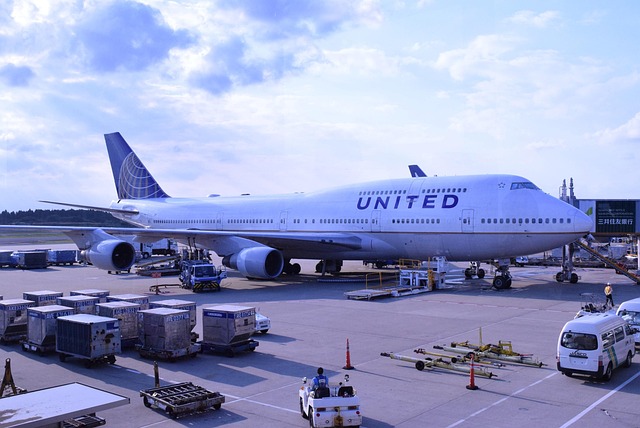Understanding Airport Ground Crew Careers: Key Insights and Pathways
Airport ground crew roles are essential behind-the-scenes positions that keep flight operations functioning smoothly. From managing baggage systems to coordinating aircraft logistics, these professionals work in dynamic environments where precision and collaboration are key. This guide explores the day-to-day structure of these careers, the different paths individuals consider when entering the field, and what factors may influence opportunities in the aviation sector. Those interested in understanding how airport operations work from the ground up can explore more about the roles, expectations, and evolving career pathways in this fast-paced industry.

What Does an Airport Baggage Handler Salary Look Like?
Airport baggage handler positions represent entry-level opportunities in ground crew operations. Salary ranges vary significantly based on location, airport size, and employer type. In the United States, baggage handlers typically earn between $25,000 and $45,000 annually, with experienced professionals potentially earning higher wages through overtime and specialized certifications.
Several factors influence compensation levels, including union representation, regional cost of living, and additional responsibilities. Major international airports often offer higher base salaries compared to smaller regional facilities. Many positions include benefits such as health insurance, retirement plans, and travel perks, which add substantial value beyond base compensation.
Career advancement opportunities can lead to supervisory roles or specialized positions in cargo operations, where experienced handlers may earn $50,000 or more annually. The physical demands of the role, including lifting requirements and outdoor work in various weather conditions, are balanced by job stability and growth potential within the aviation industry.
How to Become a Ramp Agent: Training and Requirements
Becoming a ramp agent requires meeting specific educational and physical requirements while completing comprehensive safety training. Most employers require a high school diploma or equivalent, along with the ability to pass background checks and drug screenings mandated by aviation security regulations.
The application process typically involves submitting applications directly to airlines, ground handling companies, or airport authorities. Candidates must demonstrate physical fitness capabilities, including the ability to lift 70 pounds consistently and work in challenging weather conditions. Communication skills are essential, as ramp agents coordinate with flight crews, ground control, and other team members.
Training programs combine classroom instruction with hands-on experience covering aircraft marshaling, baggage loading procedures, and safety protocols. New hires complete orientation programs lasting several weeks, followed by supervised on-the-job training. Many employers provide ongoing education opportunities to help ramp agents advance to crew chief positions or transition to other ground crew roles.
Airside Operations Training: Building Essential Skills
Airside operations training encompasses comprehensive programs designed to prepare ground crew members for the specialized environment of airport operations areas. These training modules cover federal aviation regulations, safety procedures, equipment operation, and emergency response protocols required for working near aircraft.
Training typically includes aircraft recognition, proper use of ground support equipment, and hazardous materials handling procedures. Participants learn radio communication protocols, weather awareness, and the critical safety zones around different aircraft types. Many programs incorporate simulation exercises that replicate real-world scenarios ground crew members encounter daily.
Certification requirements vary by position and location, but most programs result in credentials that are transferable between employers within the aviation industry. Ongoing training ensures compliance with evolving regulations and introduces new technologies being implemented in ground operations. Investment in quality training programs often correlates with career advancement opportunities and increased earning potential.
Airport Ground Crew Job Openings: Market Overview
The airport ground crew job market reflects the broader aviation industry’s recovery and growth patterns. Major airlines, ground handling companies, and airport authorities regularly post openings for various ground crew positions, with seasonal fluctuations typically increasing opportunities during peak travel periods.
Job availability varies significantly by geographic region, with major metropolitan areas and international airports offering more consistent opportunities. Entry-level positions like baggage handlers and ramp agents experience regular turnover, creating ongoing recruitment needs. Specialized roles in cargo operations, aircraft maintenance support, and supervisory positions may require more extensive experience but offer greater job security.
Industry sources indicate that ground crew employment is expected to grow moderately over the next decade, driven by increasing air travel demand and airport expansion projects. However, automation and technological advances may impact certain traditional ground crew functions, emphasizing the importance of continuous skill development and adaptability.
| Ground Crew Position | Typical Employer | Annual Salary Range |
|---|---|---|
| Baggage Handler | Airlines/Ground Handlers | $25,000 - $40,000 |
| Ramp Agent | Airlines/Airport Services | $28,000 - $45,000 |
| Ground Crew Supervisor | Major Airlines | $45,000 - $65,000 |
| Cargo Operations Specialist | Freight Companies | $35,000 - $55,000 |
Salary estimates mentioned in this article are based on industry data and may vary significantly based on location, experience, and employer. These figures are provided for informational purposes and may change over time. Independent research is advised before making career decisions.
Ground crew careers in aviation offer stable employment opportunities with potential for advancement within a critical industry. While entry-level positions provide accessible pathways into aviation, success requires dedication to safety, physical fitness, and continuous learning. The combination of competitive compensation, comprehensive benefits, and career development opportunities makes ground crew positions attractive options for individuals seeking dynamic work environments. As the aviation industry continues evolving, ground crew professionals who invest in training and skill development will find the most rewarding career pathways in this essential sector.




